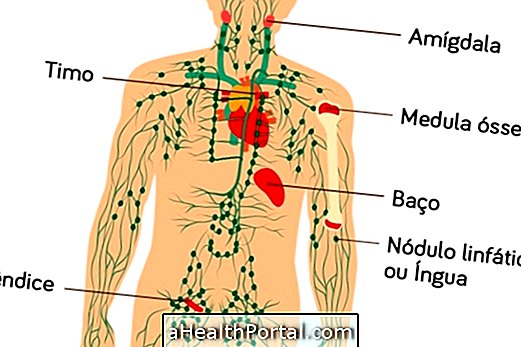This test consists of 10 multiple choice questions that can help diagnose Alzheimer's because it evaluates factors such as memory, orientation, as well as mood and language changes. The test can be done by the person himself or by a family member, when there is a suspicion of Alzheimer's.
Although it does not provide enough data to close the Alzheimer's diagnosis this questionnaire may indicate that the person needs to go to the doctor because there is a suspicion that the disease is developing. However, only the doctor, based on tests, can diagnose and indicate the treatment of Alzheimer's.
Alzheimer's is a disease that although it is more common in the elderly can also affect younger people, around the 30 years of age, especially when there are cases of relatives diagnosed with the disease. See: Symptoms of early Alzheimer's.
Do the test:
- 1
- 2
- 3
- 4
- 5
- 6
- 7
- 8
- 9
- 10
Alzheimer's rapid test. Take the test to find out your risk of having this disease.
Start the test

- I have a good memory, although there are small forgetfulness that does not interfere with my daily life.
- Sometimes I forget some things like the question they asked me, I forget appointments and where I left the keys.
- I often forget what I did in the kitchen, the living room, or the bedroom, and what I was doing.
- I can not remember simple and recent information as the name of who I've just met, even if I try hard.
- It's impossible to remember where I am and who the people are around me.
- I am usually able to recognize people, places and know what day it is today.
- I do not remember very well what day it is today and I have a slight difficulty in keeping dates.
- I'm not sure what month we are, but I can recognize familiar places, but I get a bit confused in new places and I can get lost.
- I do not remember exactly who my family is, where I live and I do not remember anything about my past.
- All I know is my name, but sometimes I remember the names of my children, grandchildren or other relatives
- I am fully able to solve everyday problems and deal well with personal and financial issues.
- I have some difficulty understanding some abstract concepts such as why a person can become sad, for example.
- I'm feeling a bit insecure and I'm afraid to make decisions and so I prefer that others decide for me.
- I do not feel able to solve any problem and the only decision I make is what I want to eat.
- I am not able to make any decisions and I am totally dependent on the help of other people.
- Yes, I work normally, I shop, I'm involved with the community, church, and other social groups.
- Yes, but I'm starting to have some difficulty driving but I still feel safe and I know how to handle emergency or unplanned situations.
- Yes, but I am unable to be alone in important situations and I need someone to accompany me in social engagements to be able to look like a "normal" person to others.
- No, I do not leave the house alone because I do not have the capacity and I always need help.
- No, I'm unable to leave the house alone and I'm too sick for that.
- Great. I still have chores in the house, I have hobbies and personal interests.
- I no longer feel like doing anything in the house, but if they insist, I can try to do something.
- I completely abandoned my activities, as well as more complex hobbies and interests.
- All I know is bathing alone, dressing and watching television, and I can not do any other task in the house.
- I can not do anything on my own and I need help with everything.
- I am fully capable of taking care of myself, dressing, washing, bathing and using the bathroom.
- I'm starting to have some difficulty taking care of my own personal hygiene.
- I need others to remind me that I have to go to the bathroom, but I can handle my needs on my own.
- I need help getting dressed and cleaned up, and sometimes I pee on clothes.
- I can not do anything by myself and I need someone else to take care of my personal hygiene.
- I have normal social behavior and there are no changes in my personality.
- I have minor changes in my behavior, personality and emotional control.
- My personality is changing little by little, before I was very nice and now I'm kind of grumpy.
- They say that I have changed a lot and am no longer the same person and I am already avoided by my old friends, neighbors and distant relatives.
- My behavior has changed a lot and I have become a difficult and unpleasant person.
- I have no difficulty in speaking or writing.
- I'm beginning to have some difficulty finding the right words and it takes longer to complete my reasoning.
- It's getting harder and harder to find the right words and I've had trouble naming objects, and I notice that I have less vocabulary.
- It is very difficult to communicate, I have difficulty with words, to understand what they say and I do not know how to read or write.
- I just can not communicate, I do not say much, I do not write and I do not understand what I'm told.
- Normal, I do not notice any change in my mood, interest, or motivation.
- Sometimes I become sad, nervous, anxious or depressed, but without major concerns in life.
- I get sad, nervous or anxious every day and this has become more and more frequent.
- Every day I feel sad, nervous, anxious or depressed and I have no interest or motivation to perform any task.
- Sadness, depression, anxiety and nervousness are my daily companions and I have totally lost my interest in things and I have no motivation at all.
- I have perfect attention, good concentration and great interaction with everything that is around me.
- I'm starting to have trouble paying attention to something and I'm drowsy during the day.
- I have some difficulty in attention and little concentration and so I can stare fixedly or closed eyes for a while, even without sleep.
- I spend a good part of the day sleeping, I do not pay attention to anything and when I say I say things without logic or that have no relation to the subject of the conversation.
- I can not pay attention to anything and I'm completely deconcentrated.
Alzheimer's is a degenerative disease that worsens over time and needs to be treated as soon as possible with the use of medicine and physical therapy to improve the patient's quality of life.
The author of this test is the American neurologist James E Galvin and New York University Langone Medical Center.





















